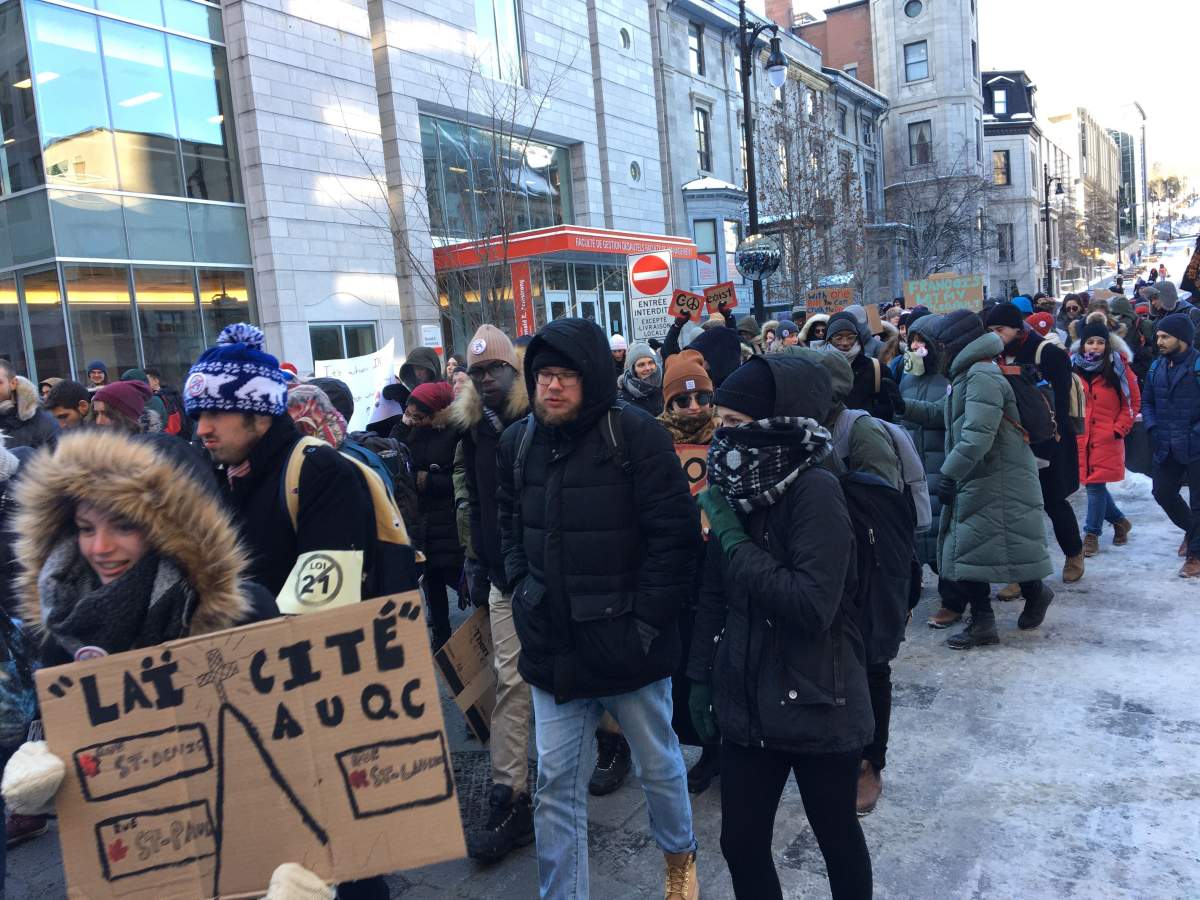Canadian civil rights groups have filed an appeal with the Supreme Court of Canada after Quebec’s top court rejected their challenge to the province’s religious symbol ban.

The Canadian Civil Liberties Association, the National Council of Canadian Muslims and a university student announced the move in a statement on Friday.
Mustafa Farooq, executive director of the NCCM, said that Bill 21 doesn’t have a place in a progressive and inclusive society.
“It’s really clear from our perspective that the severe and irreparable harm represents an existential threat to the lives of so many folks,” he told Global News.
Quebec’s secularism law, known as Bill 21, bars some public-sector employees — including teachers, police officers and judges — from wearing religious symbols in the workplace. It was adopted in the provincial legislature in June.
In December, the groups’ application for a stay of the provincial legislation until a full legal challenge could be heard in Quebec Superior Court was rejected by the Quebec Court of Appeal in a 2-1 ruling.

Get breaking National news
While the three judges acknowledged the law is causing harm that may be irreparable to teachers who wear the hijab, the majority agreed the province’s use of the notwithstanding clause means Bill 21 should not be suspended.
The applicants argue the religious symbols ban leads to “irreparable harm” and that it unfairly targets women and harms minority groups in Quebec.
“What Bill 21 says to them is you’re not welcome to become a teacher, to become a prosecutor, to become a police officer simply because you have the unmitigated temerity to wear a religious symbol,” said Farooq.
In Montreal, dozens of university students and demonstrators braved the cold on Friday afternoon to protest the Quebec government’s secularism law.
Amal Sassi, a student in education at Université du Québec à Montréal, wears a headscarf. She said religious symbols don’t impede public-sector workers from fulfilling their obligations on the job.
“We are professionals and we will not be converting students,” she said. “We’re just going to teach like everybody else.”
She received academic scholarships from the province to eventually become a teacher but she said the government is preventing her from following her passions.
“I think it’s hypocrisy,” she said.
Shauna Fine, an elementary teacher in the French public school system in Quebec, said she has marched four times to protest Bill 21.
“We have to keep trying. If we don’t try, what’s the point in being here? If we don’t believe in our values as Canadians and our values as Québécois, our country is done,” she said.
Fine said the groups’ moving forward to take their case to the Supreme Court gives her hope that the law could one day be struck down.
READ MORE: Quebec’s Bill 21 leads to ‘irreparable harm,’ civil liberties groups tell Court of Appeal
— With files from Global News’ Tim Sargeant









Comments
Want to discuss? Please read our Commenting Policy first.